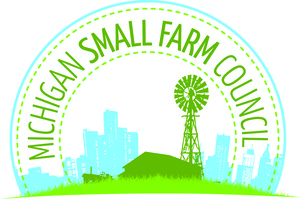by Wendy Lockwood Banka
The Urban Livestock Workgroup (ULW) Report has now been released. I expect that much will be said about the policy and technical arms of this report in the coming weeks, but for the moment I want to put a copy of the report in the hands of everyone who wants to read it, and to make the major policy conclusion clear.
In a nutshell, the Urban Livestock Workgroup Report recommends new legislation to put urban livestock under local control. I was a member of the ULW policy group and dissented from this majority opinion, as did three others.
It is no surprise that this was the outcome of the group, since the composition of the group was clearly weighted toward interests other than urban livestock agriculture. To my knowledge there were only two members of the ULW who actually practice livestock agriculture in an urban or suburban areas, and so have a personal understanding of and interest in advancing urban livestock agriculture. While concerns of those not engaged in urban livestock agriculture are valid, the extent to which those interests were represented - and the extent to which actual urban agriculture interests were excluded - was problematic for a workgroup with a charge to "stimulate and support local efforts to address the increased interest in raising livestock in urban/suburban areas for home use and sale to local markets."
The list of committee members is in the report. The majority consisted of township and municipal officials, and large agriculturally-zoned farmers who will not be affected by the proposed recommendations. In a clear minority, only two members of the ULW actually keep livestock in an urban or suburban area. Indeed, it was noted on several occasions that although urban agriculture is of clear interest in large cities like Detroit and in African-American communities around the state, there was no representation of these groups on the ULW.
The Michigan Small Farm Council organized in 2012 with a mission to protect and extend the rights of urban, suburban, and rural small-scale farming operations throughout the state. If you wish to join us as we consider the implications of this recommendation of the Urban Livestock Workgroup, you can do so here:
https://www.michigansmallfarmcouncil.org/join-us.html
The Urban Livestock Workgroup (ULW) Report has now been released. I expect that much will be said about the policy and technical arms of this report in the coming weeks, but for the moment I want to put a copy of the report in the hands of everyone who wants to read it, and to make the major policy conclusion clear.
In a nutshell, the Urban Livestock Workgroup Report recommends new legislation to put urban livestock under local control. I was a member of the ULW policy group and dissented from this majority opinion, as did three others.
It is no surprise that this was the outcome of the group, since the composition of the group was clearly weighted toward interests other than urban livestock agriculture. To my knowledge there were only two members of the ULW who actually practice livestock agriculture in an urban or suburban areas, and so have a personal understanding of and interest in advancing urban livestock agriculture. While concerns of those not engaged in urban livestock agriculture are valid, the extent to which those interests were represented - and the extent to which actual urban agriculture interests were excluded - was problematic for a workgroup with a charge to "stimulate and support local efforts to address the increased interest in raising livestock in urban/suburban areas for home use and sale to local markets."
The list of committee members is in the report. The majority consisted of township and municipal officials, and large agriculturally-zoned farmers who will not be affected by the proposed recommendations. In a clear minority, only two members of the ULW actually keep livestock in an urban or suburban area. Indeed, it was noted on several occasions that although urban agriculture is of clear interest in large cities like Detroit and in African-American communities around the state, there was no representation of these groups on the ULW.
The Michigan Small Farm Council organized in 2012 with a mission to protect and extend the rights of urban, suburban, and rural small-scale farming operations throughout the state. If you wish to join us as we consider the implications of this recommendation of the Urban Livestock Workgroup, you can do so here:
https://www.michigansmallfarmcouncil.org/join-us.html


 RSS Feed
RSS Feed